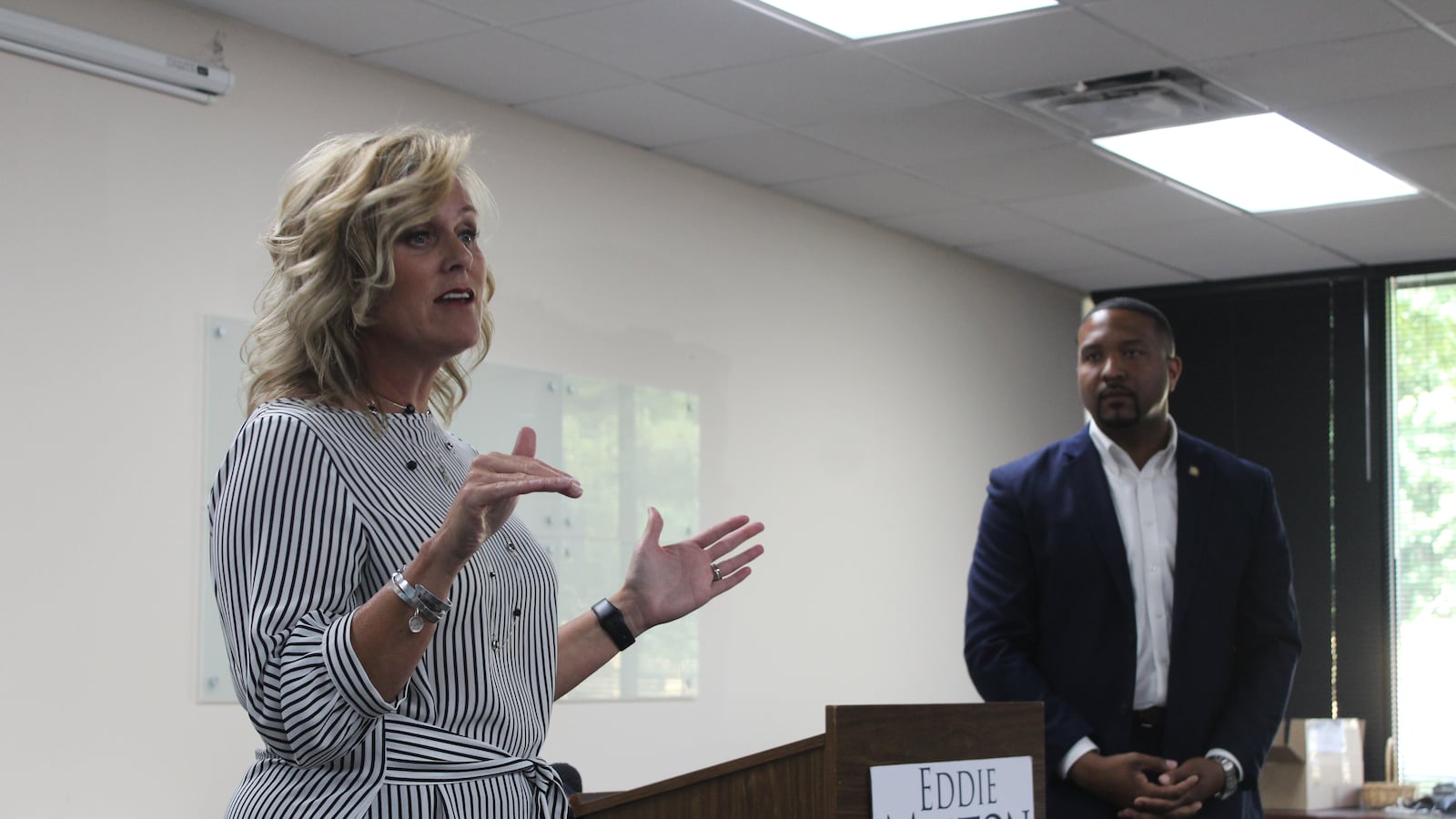Democratic Senator Eddie Melton told a crowd of more than 100 people Thursday that good education policy only happens when public officials ask for help: From the experts, yes, but also from the communities that will be affected.
So when Melton decided last month to launch an exploratory committee around a potential bid for governor, he asked State Superintendent Jennifer McCormick, a Republican, to join him on a statewide listening tour to explore Indiana education policy. Their bipartisan collaboration drew curiosity and, among Indiana GOP leaders, criticism. Some of her critics say McCormick is vying to become Melton’s running mate.
But that controversy was largely absent during the duo’s first tour stop, at the Indiana State Teachers Association office in Indianapolis. The crowd, and Melton and McCormick themselves, mostly steered clear of the topic during their two-hour conversation with school superintendents, school board members, parents, teachers ranging from veterans to those just starting out. Those in attendance spoke on such issues as how charter schools impact traditional public schools, teacher salaries that many said they see as inadequate, and the growing enrollment scandal at Indiana Virtual School.
“They find a new charter authorizer, and they keep going, and they keep taking state dollars that should be going to teacher pay,” Steve Corona, a member of the Fort Wayne Community School Board, said of charter schools with poor academic track records. “They’re like zombies. They go on and on and on.”
But David McGuire, principal of Tindley Summit Academy — part of the high-performing Tindley Accelerated Schools charter network on Indianapolis’ far eastside — offered a different perspective on charters.
“How do we bridge to stop all this bickering about charter schools?” McGuire, who writes for the local education blog Indy K12, asked the room. “We should care about the kids, not just what type of school they attend.”
Democratic lawmakers, including Melton, have called for a “moratorium” on new charter schools in the past, claiming their expansion draws students and resources away from traditional public schools, hurting enrollment and leading to closures. But before McGuire and the crowd, Melton acknowledged the charter schools that do exist — including those in his hometown, Gary — deserve support.
“You know, 60% of our children are in charter schools. They’re not going anywhere in Gary,” Melton said. “I want those existing charters to be successful, because our children are in those schools. …I think the problem that launched when we initiated the charter movement in Indiana was the proliferation of charter schools, particularly in low-income, black and brown communities.”
Forum participants also discussed how to accelerate diverse representation in the classroom, improve school safety, and provide trauma-informed care, especially at schools serving low-income students.
None is a simple issue, which is why collaboration among legislators, the state Department of Education, and teachers and school leaders is key, Melton and McCormick said.
“You realize the limitations of your knowledge base when it comes to education, and you listen to practitioners to help you,” McCormick said to Melton. “That’s what it’s going to take. …It’s going to take everyone to have a conversation.”
McCormick and Melton are scheduled to continue their listening tour on July 15 in Fort Wayne.

